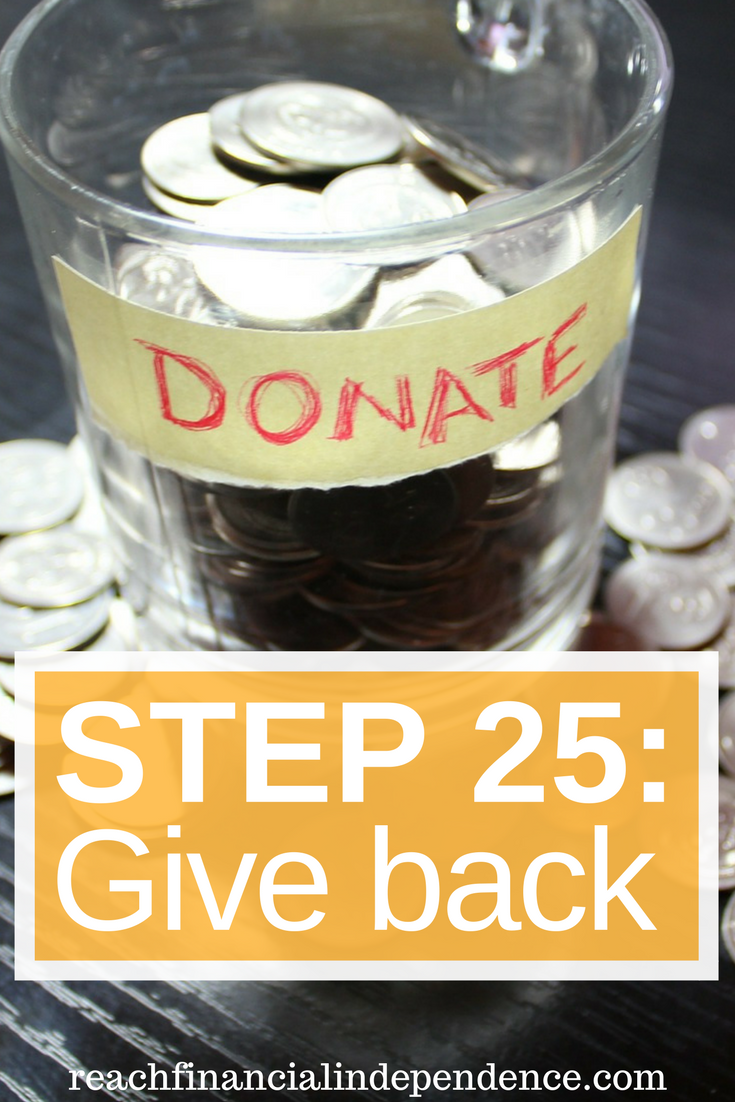
This post is part of a 30 days series called the 30 steps program to financial independence. You can check the list of other posts here.
This is a step I am learning to master. People in Europe give way less money to charity than in the US. We are not used to donating money to our alma mater, or buying cookies from girl scouts. We give a bit to big NGOs and dread when the neighbors come knocking, kid in hand, to force sell lottery tickets for the school fundraiser.
I was raised in a catholic school and a girl scout, so I have done a lot of volunteering over time, and I can say that I am pretty generous with my time. If I can fix your computer, cook for you or teach so something, I will usually happily do so. But if you ask for money I will think twice.
Because I have seen too many projects poorly administrated, I feel like I am giving money for nothing. The church? That minister is not frugal enough, I do not want to pay for his lifestyle. The volunteering project my classmates are doing? They will probably get ripped off once they arrive to Africa to volunteer, again, a poor use of my money. Few charities have appealed to me.
One that has helps little girls get a free education in South East Asia. You can sponsor a girl and all the funds go to the girl, administrative funds are raised separately. Same thing with Charity:Water. All the money you donate gets donated to the project. Those are the kind of charities I like to help.
But back to the giving. As we talked about before, if you help around, in your community, you will likely get help back. You may not value it, but as a person who has been away from home for the past 10 years, I can tell you everything that I miss on for not giving. Because I am not around to help my friends when they move house or need a baby sitter, I can’t really ask them favor when I come back. I can’t ask them to give me their time and effort when I need them.
If you give money to your church, you may be allowed to use the meeting room once a week to host your book club. If you volunteer your time at the soup kitchen, you may meet local people who would become friends, learn new skills, and that time would not be spent engaging in expensive hobbies. How is that for a win/win/win situation?
Give back. Be grateful for what you have. What you give may be a small portion of what you have, it may be a huge help to someone. You don’t have to go all the way to Africa. Look at your friends, your family, your community. Can someone use your help? By being grateful you will make the world around you a better place, and attract good people too, willing to help. Value those connections.
If you give back, you will still receive valuable skills, gifts and life lessons. You will realize truly how much you have and how little you need. And that will lead you towards a greater financial independence.
Here is a good article at Get Rich Slowly about ways to give without breaking the bank.
